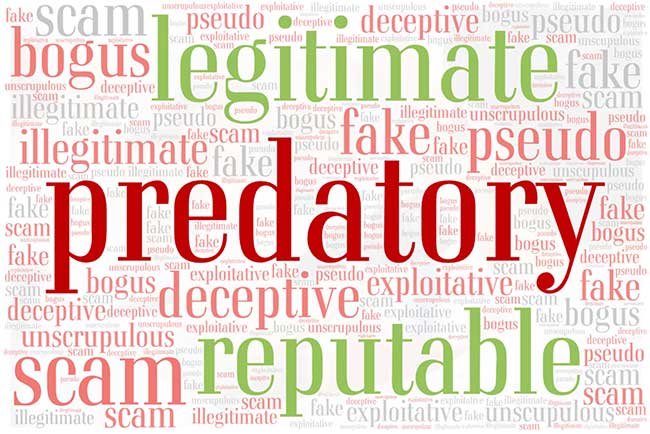There are many definitions of predatory journals available, but perhaps it can be most simply stated as follows:
"A predatory journal is a journal that deceptively takes from an author."
"A predatory journal is a journal that deceptively takes from an author."
This concept of deceptively taking from an author can have a number of forms, which we discuss below. Opinions can differ on whether certain publishers and journals are predatory or not, but what is not in question is that the bulk of predatory journals engage in clear fraud.
Predatory journals seek to obtain money from authors (usually via article processing charges [APCs]) to publish their papers (usually open access) but fail to uphold the standard editorial, peer review, or other ethical publishing practices that reputable journals do. They typically conceal, lie about, or mislead authors on fees and the publication process.
The most recent definition of predatory journals and publishers was published in December 2019 in Nature. This clear and comprehensive consensus definition was reached during a 3-round modified Delphi process involving 43 participants from 10 countries in 12 hours of discussion, addressing 18 questions and 28 sub-questions.
Consensus definition:
“Predatory journals and publishers are entities that prioritize self-interest at the expense of scholarship and are characterized by false or misleading information, deviation from best editorial and publication practices, a lack of transparency, and/or the use of aggressive and indiscriminate solicitation practices.”
Grudniewicz et al., Nature 576, 210-212 (2019)
Now that we have a clear definition of what predatory journals are, we next need to know how—as authors and reviewers—we can identify and avoid them.



